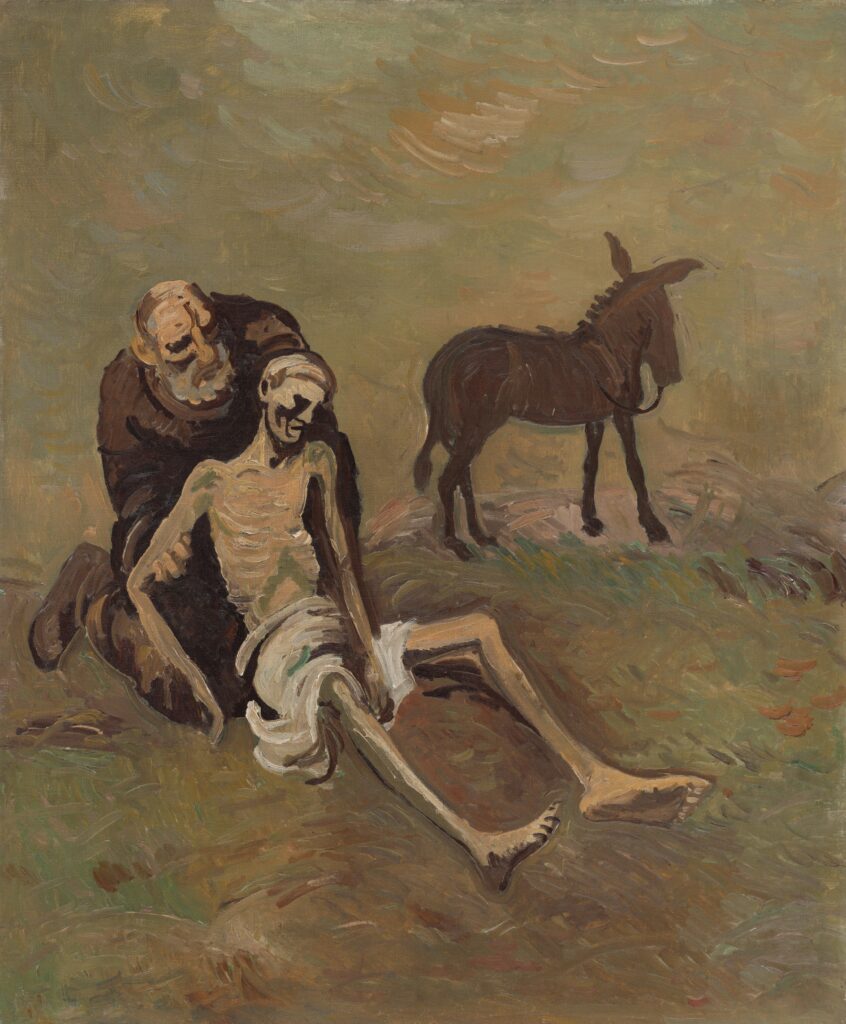How discipleship and social action are intimately connected
As part of our Diocesan Way of Life framework for whole life discipleship, there are three ‘movements’: Stay with God, Share the Journey and Serve the World.
In an occasional new series, we’re asking people in ministry to give their reflections on ‘Serve the World’ and how it links with the other movements.
This reflection is written by Revd Paul Davies, Dean of Mission for The Two Cities Area, and priest who has served in a range of parish contexts in the UK and overseas.
Why Do Good? Why Bother?
Many local churches are engaging with their communities in seeking to do good, often in partnership with other faith groups and civic organizations. Behind these initiatives lies a deep motivation: to enable human life to flourish, both personally and communally, and to work toward a more just society.
Within the London Diocese Vision 2030— “for every Londoner to encounter the love of God in Christ”— this is expressed by creating compassionate communities of confident disciples.
The Challenge We Face
For many Christian communities, the pressures of responding to the needs of society can feel overwhelming. At times, the question arises: is this sustainable—physically and spiritually? Guilt often follows when we cannot keep up, and self-care can feel selfish. At times, it seems as though following Jesus demands everything to the point of exhaustion—a kind of spiritual self-harm.
And yet, the call remains. The challenge is not simply whether we act, but how we act—sustainably, faithfully, and with life-giving purpose.
Breathing In and Breathing Out
One image may help us: breathing.
To live, we breathe out and breathe in. So it is with discipleship. Our “breathing out” is every prayer, every act of kindness, every sacrifice for others. But breathing out without breathing in is unsustainable—we faint, we die. Likewise, if we only breathe in, hoarding life for ourselves, we stagnate and wither.

The life of a Christian community must be both: breathing in God’s Spirit and breathing out God’s love. Both lungs must work together—compassionate community and confident discipleship.
What It Means to Breathe In
To breathe in is to draw life from God. This happens in three core practices:
- Nurturing spiritual habits—prayer, Scripture, and worship
- Building deep relationships with one another as brothers and sisters in Christ.
- Cultivating intimacy with God—abiding in Christ, the source of our life.
These are not optional extras; they are the very breath of discipleship.
Only when we breathe in can we breathe out in love for others.
Some ask: What comes first? Is it more important to be confident disciples or to create compassionate communities? The truth is: it is not either/or. We need both.
As John reminds us, “We cannot love God unless we love each other” (1 John 3:16). Love for God and love for one another are inseparable.
Without both, life collapses. With both, the Church breathes deeply and fully.
Compassion That Endures
Jesus said: “The poor you will always have with you” (Mark 14:7). The call to compassion will never disappear. Yet Jesus also shows us that devotion to Him comes first—our love for Christ fuels our love for the world. Without devotion, compassion burns us out; with devotion, compassion flows freely and sustainably. Devotion is not neglecting the poor. It is what empowers us to serve them without losing our souls. Love for Christ and for our brothers and sisters in faith grounds us to love the world well.
The Good Samaritan Reimagined

Viewed through the lens of incarnation, the parable of the Good Samaritan reveals something profound: the wounded man is Christ Himself. And the Samaritan—the healer—is also Christ.
Christ is both the one who suffers and the one who saves. When we do good, we are not merely “helping people.” We are meeting Christ on the road, loving Him in the broken, and being empowered by Him to heal. This is why the question “Why do good?” is not answered by “because it’s right” or “because God wants us to”.
We do good because in doing so, we encounter Jesus Himself. If two people feed the hungry—one Christian and one not—the action looks the same. But the motivation is different. For the Christian, the act is not simply about human need; it is about Christ Himself, present in the hungry, calling us to love.
Thus, doing good is not simply an ethical duty. It is a holy encounter.
Living fully in Christ
Sustainable compassion and confident discipleship come only when love for Christ comes first. We breathe in through devotion, and we breathe out through service. This rhythm gives life to us and life to the world. Remember the instruction on an airplane: “Put on your own oxygen mask before helping others.” It is not selfish—it is wisdom.
To love well, we must first draw breath ourselves.
So, why do good? Why bother? Because to be confident disciples and compassionate communities is to live fully in Christ. It is to breathe deeply of His life and to breathe out His love into the world.
Discipleship & Service: A Series
As part of the Diocesan Way of Life framework for whole life discipleship, there are three postures: Stay with God, Share the Journey and Serve the World.
In an occasional new series, we’re asking people in ministry to give their reflections on “Serve the World” and how it links with the other postures.
Our churches are busier than ever being present in their local communities, “serving the world”.
We see this serving through foodbanks, toddler groups, visiting the sick, offering community meals, mental health support, childrens groups and uniformed organisations; caring for refugees and asylum seekers, offering comfort to those who are homeless, chaplaincy, campaigning for local or national change and a myriad more ways.
If we allow ourselves to reflect on this service, we may find ourselves asking ourselves important questions, such as…
- How is the work we do as churches in our communities related to our commitment and the call to follow Christ and deepen in relationship with him?
- Why should the church be doing this? Why not any other secular charity or “service provider”?
- How do we do this sustainably? How do we do this without burning out or losing focus on the reasons behind our service?
- Where does our work in our communities speak of God’s call to justice, not just charity?
- In doing this work, what should our posture be?
This series hopes to start conversations about those and other questions.

